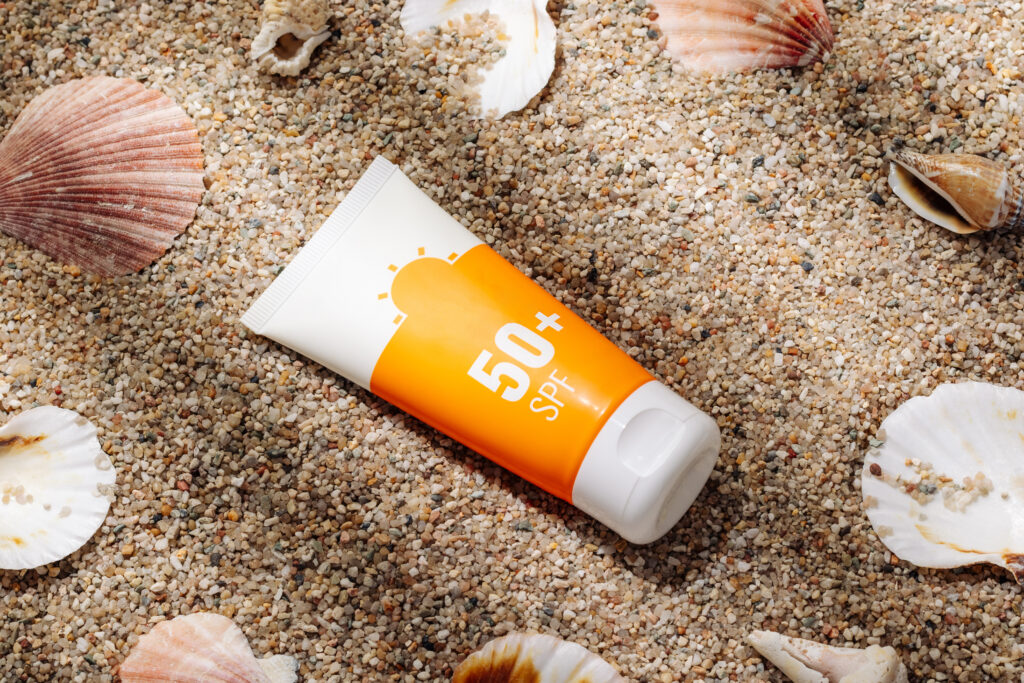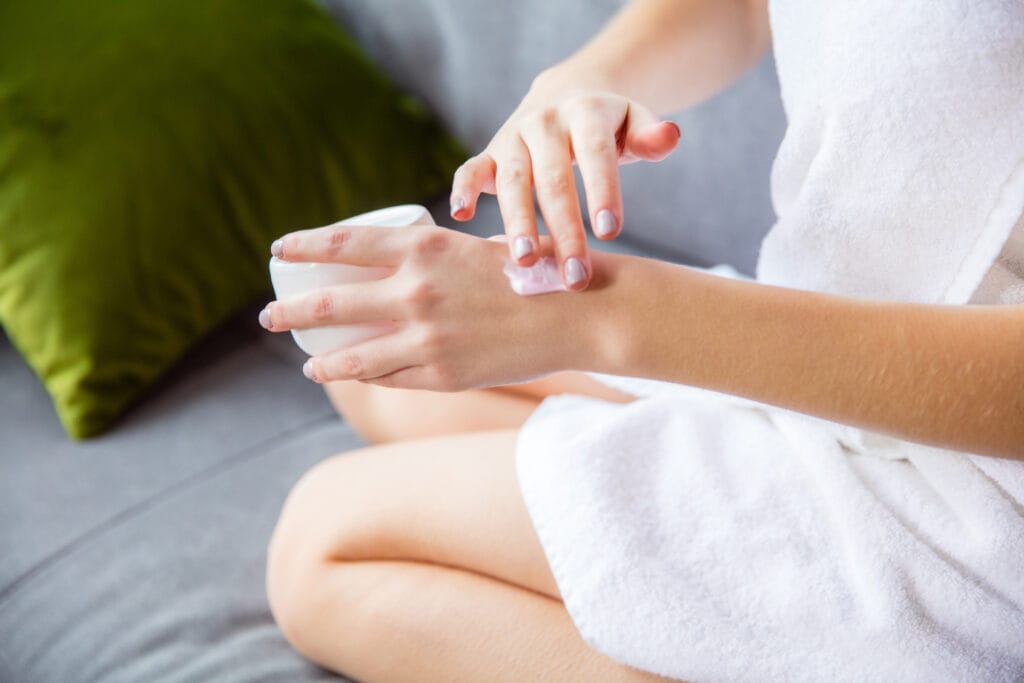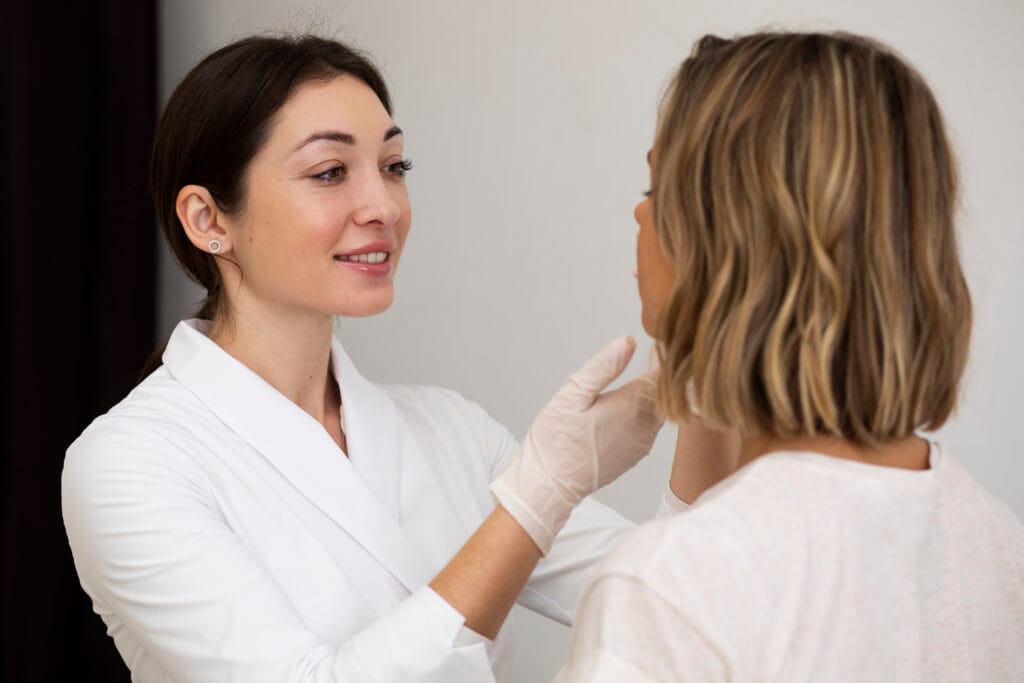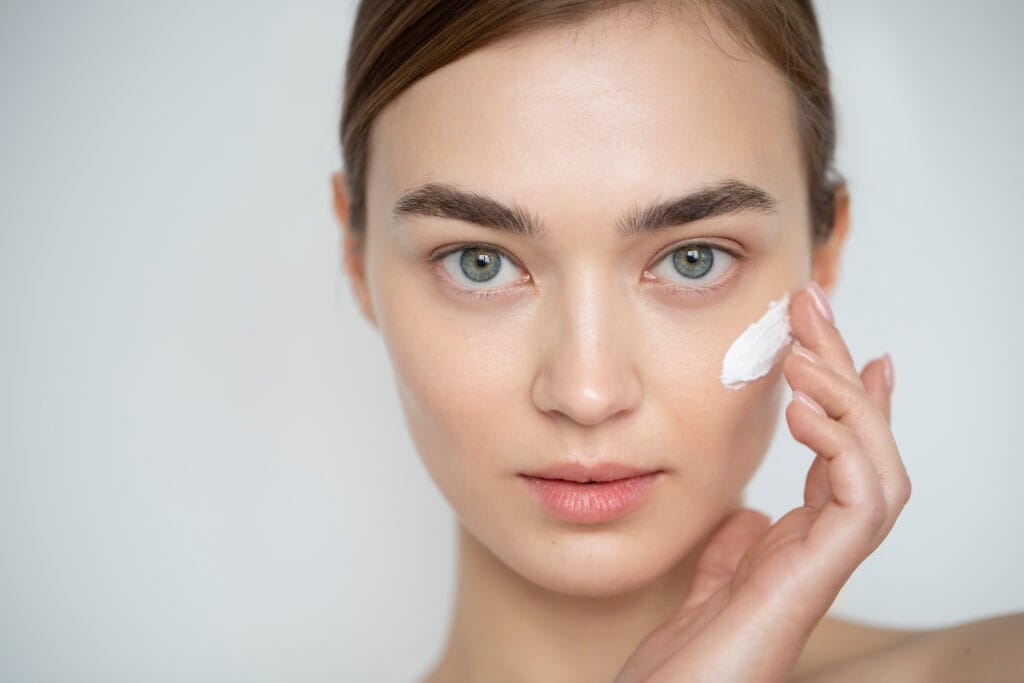Skincare can feel like a daunting task, but it doesn’t have to be! Ever wonder what skincare secrets dermatologists wish you knew to achieve that flawless skin? Well, you’re in luck! Today, we’re diving into ten of those secrets that dermatologists wish everyone knew.
Get ready to transform your skincare routine and embrace that glow!
1. The Importance of Sunscreen: Protecting Your Skin for a Healthier Future
Sunscreen is more than just a summer essential; it’s a daily necessity that helps safeguard your skin from harmful UV rays, premature aging, and even skin cancer.
Whether it’s sunny, or cloudy, or you’re indoors, protecting your skin from ultraviolet (UV) radiation is critical.
Let’s dive into why sunscreen is so important and how to incorporate it into your daily routine.
Protect Your Skin Daily
Dermatologists emphasize that applying sunscreen every day is one of the most important skincare steps.
UV rays can reach your skin even on cloudy days and can pass through windows, making you susceptible to their effects throughout the entire year.
Daily use of a broad-spectrum sunscreen with an SPF of 30 or higher not only protects against sunburn but also helps prevent long-term damage like wrinkles, dark spots, and skin cancers.
By making this a habit, you’re actively preserving your skin’s health and youthful appearance.
Reapply Regularly
Applying sunscreen is only the first step.
To ensure continuous protection, especially when outdoors or engaging in activities like swimming or exercising, reapply every two hours.
Sweating or water exposure reduces sunscreen’s effectiveness, so keep this in mind.
Regular reapplication can significantly reduce your risk of developing serious skin conditions caused by prolonged UV exposure.

How to Choose the Right Sunscreen
Choosing the right sunscreen can be overwhelming, but there are a few key factors to consider:
Broad-spectrum protection: Shields you from both UVA and UVB rays.
SPF 30 or higher: Provides adequate protection for most skin types.
Water-resistant: Ideal if you’re swimming or sweating, but still remember to reapply. By understanding the labels and ingredients, you can choose a sunscreen that suits your skin’s needs and lifestyle.
Sunscreen Isn’t Just for Sunny Days
It’s easy to think sunscreen is only necessary during summer or on sunny days, but UV rays can penetrate through clouds and even windows, leading to cumulative skin damage over time.
Even if you’re indoors, particularly near windows, your skin can be at risk.
That’s why it’s essential to make sunscreen part of your year-round skincare regimen.
Myths about Sunscreen
Many misconceptions about sunscreen can lead to improper use. Here are a few myths debunked:
“I don’t need sunscreen if I’m indoors.” UV rays can still affect your skin through windows.
“Darker skin doesn’t need sunscreen.” While melanin offers some protection, people with darker skin are still at risk for skin cancer and aging.
“Sunscreen blocks vitamin D.” Most people can still get enough vitamin D from minimal sun exposure, even when wearing sunscreen.

2. Hydration is Key: Nourishing Your Skin Inside and Out
Staying hydrated is essential for achieving and preserving healthy, radiant skin. It’s not just about what you apply externally, but also how you nourish your body from within. Let’s explore two simple ways to keep your skin hydrated and radiant.
Drink Plenty of Water
Hydration starts with the basics—drinking enough water daily. Staying well-hydrated is essential for maintaining your skin’s elasticity, keeping it plump, soft, and radiant. Aim for at least eight glasses of water each day to support your skin’s natural hydration and overall health.
Adequate water intake also improves circulation and helps flush out toxins, contributing to a clearer complexion.
If plain water feels boring, try infusing it with fresh fruits or herbs like lemon, cucumber, or mint for added flavor and nutrients.
Herbal teas and water-rich foods like cucumbers, oranges, and watermelon can also enhance your hydration.
By prioritizing water in your routine, you’ll promote a vibrant, healthy glow for your skin!
Use Hydrating Skincare Products
In addition to drinking enough water, using hydrating products in your skincare routine is essential for a healthy complexion. Look for ingredients like hyaluronic acid and glycerin, which attract moisture and lock it in.
Hyaluronic acid can hold up to 1,000 times its weight in water, while glycerin draws moisture from the environment into your skin. Together, they boost hydration, leaving your skin soft and smooth.
Incorporating hydrating serums, creams, and masks strengthens your skin’s moisture barrier and protects against environmental stressors. By prioritizing hydration, you’ll achieve a radiant glow all year round.

3. Know Your Skin Type: Tailoring Your Skincare for the Best Results
Knowing your skin type is the cornerstone of an effective skincare regimen. When you know your skin’s specific needs, you can select products that enhance its health and appearance. Here’s how to get started.
Identify Your Skin Type
The initial step in developing a successful skincare routine is to determine your skin type.
Whether it’s oily, dry, combination, or sensitive, understanding your skin’s characteristics is essential for choosing the right products.
Observe how your skin behaves throughout the day.
Tightness and flakiness indicate dry skin, while shine, especially in the T-zone, suggests oily skin. Combination skin shows both traits and sensitive skin may react with redness or irritation.
To determine your skin type, wash your face with a gentle cleanser and leave it bare for an hour, noting how it feels.
By recognizing your skin type, you can select products that cater to your specific needs, paving the way for a healthier complexion.
Choose Products Wisely
After identifying your skin type, selecting complementary products is crucial.
For oily skin, choose oil-free moisturizers and lightweight formulations to prevent clogged pores and breakouts.
If you have dry skin, look for rich, hydrating creams that restore moisture, incorporating ingredients like shea butter and ceramides for added nourishment.
Tailoring your skincare routine to your specific needs enhances effectiveness and reduces the risk of irritation. By understanding your skin type and choosing the right products, you’ll achieve better results and maintain a radiant, healthy complexion!

4. Don’t Skip Moisturizer: Essential for All Skin Types
Hydrating your skin is an essential part of every skincare regimen, no matter your skin type. Here’s why it’s important to include it. Here’s why you should always make it a priority.
Everyone Needs Moisturizer
Using a moisturizer is essential for all skin types, including oily skin. Proper hydration helps balance your skin’s oil production, preventing excess shine and breakouts.
For oily skin, choose a lightweight, non-comedogenic moisturizer that hydrates without clogging pores. Look for ingredients like hyaluronic acid, glycerin, or aloe vera, which provide moisture without adding oil.
Incorporating a moisturizer into your routine supports your skin’s natural barrier, improving texture and promoting a radiant glow.
By prioritizing hydration, you’ll achieve a balanced and healthier-looking complexion!
Apply on Damp Skin
For optimal hydration, apply moisturizer to damp skin right after cleansing. This enhances absorption, allowing your skin to soak up the product more effectively.
Damp skin helps lock in moisture, promoting deeper penetration and longer-lasting hydration. This technique is particularly beneficial for dry or sensitive skin, as it helps maintain the skin’s moisture barrier.
To maximize results, consider using a hydrating mist or toner before your moisturizer. This simple step can improve your skin’s texture, leaving it soft and radiant all day long!

5. Exfoliation Matters: Achieving a Radiant Complexion
Exfoliation is an important part of skincare, helping to remove dead skin cells and promote a brighter, smoother complexion.
However, it’s essential to do it the right way to avoid irritation.
Find Your Balance
Exfoliating can brighten your complexion, but overdoing it can cause redness and irritation.
To maintain healthy skin, aim to exfoliate 1 to 2 times a week. This helps remove dead skin cells without causing harm.
Pay attention to your skin’s reaction; reduce frequency if you notice irritation. Choose the right exfoliant as well: physical scrubs use abrasive particles, while chemical exfoliants like AHAs and BHAs dissolve dead skin without scrubbing.
Finding the right balance in your exfoliation routine will help you achieve a radiant complexion while keeping irritation at bay!
Choose the Right Exfoliant
For smoother, glowing skin, opt for chemical exfoliants like AHAs (Alpha Hydroxy Acids) and BHAs (Beta Hydroxy Acids).
AHAs brighten and improve skin texture, while BHAs penetrate deeper to unclog pores and reduce breakouts.
These gentle options work effectively without causing irritation like physical scrubs, making them ideal for regular use.
By choosing the right exfoliant, you’ll achieve a radiant complexion while keeping your skin healthy. Start slow, stay consistent, and your skin will thank you!

6. Don’t Ignore Your Neck and Hands: Keep Them Looking Youthful
Skincare shouldn’t stop at your face. The neck and hands are just as prone to signs of aging, so they deserve some attention too.
Extend Your Skincare Routine
Don’t neglect your neck and hands, as they are often the first areas to show signs of aging like wrinkles and sunspots.
Make it a regular part of your skincare routine to apply your products—cleansers, serums, and moisturizers—to these areas every day.
Always apply sunscreen to your neck and hands to shield them from UV damage, even on overcast days.
Additionally, consider using anti-aging creams containing peptides or antioxidants to help maintain their elasticity and youthful appearance.
By incorporating these steps into your regimen, you’ll ensure a more consistent and radiant look.
Use Anti-Aging Products
Your neck and hands should receive the same anti-aging care as your face. Incorporating specialized products can enhance their appearance significantly.
Look for creams and serums that contain retinol, which boosts collagen production and promotes cell turnover, reducing fine lines. Antioxidants like vitamins C and E are also essential, as they protect against environmental damage and brighten the skin.
By regularly applying these treatments, you can improve skin texture and keep your neck and hands looking smooth and youthful. A comprehensive anti-aging approach will elevate your skincare routine and help maintain a vibrant appearance.

7. Be Mindful of Ingredients
Pay attention to skincare ingredients. Look for beneficial components like peptides, antioxidants, and ceramides, while avoiding harmful additives such as alcohol and synthetic fragrances. Opting for gentle, natural ingredients can help maintain your skin’s health and balance.
Read Labels Carefully
Understanding skincare product labels is essential for a successful routine.
Look for beneficial ingredients like peptides, which boost collagen production, and antioxidants that protect against environmental damage.
Ceramides are also important as they strengthen the skin barrier and lock in moisture. Additionally, be wary of harmful additives.
By carefully examining labels, you can choose products tailored to your skin’s needs, promoting a healthier and more radiant complexion. Prioritizing quality ingredients will lead to a more effective skincare regimen.
Avoid Harmful Additives
Avoiding products with harsh additives is essential for maintaining healthy skin.
Ingredients like alcohol and synthetic fragrances can irritate the skin, causing dryness and redness while disrupting its natural balance.
Instead, choose skincare items with gentle, natural ingredients that soothe and nourish. Look for products containing soothing elements like aloe vera, chamomile, and botanical extracts, which can help calm irritation.
By focusing on gentle formulations, you promote a healthier, more radiant complexion and reduce the risk of skin irritation.

8. The Role of Diet in Skincare
Your diet significantly impacts your skin’s health.
Consuming a balanced diet rich in fruits, vegetables, whole grains, and healthy fats—especially omega-3 fatty acids—can keep your skin hydrated and supple.
Conversely, limiting sugar and processed foods can help reduce breakouts and inflammation, promoting a clearer complexion.
Eat a Balanced Diet
What you eat significantly impacts your skin’s health and appearance. A balanced diet filled with a variety of fruits, vegetables, whole grains, and healthy fats is essential for a radiant complexion.
Foods rich in omega-3 fatty acids, like salmon, walnuts, and flaxseeds, help keep your skin hydrated and supple by strengthening its barrier and reducing inflammation. Additionally, antioxidants found in colorful fruits and vegetables protect your skin from damage.
By focusing on a nutritious diet, you not only nourish your body but also enhance your skin’s vitality, leading to a vibrant and youthful glow.
Limit Sugar and Processed Foods
Cutting back on sugar and processed foods can significantly benefit your skin. High sugar intake and processed items often lead to increased inflammation and breakouts, worsening conditions like acne and premature aging.
Instead, prioritize nutrient-dense foods such as fresh fruits, vegetables, whole grains, and lean proteins. These foods are rich in vitamins, minerals, and antioxidants that nourish your skin and promote a clear complexion.
By making these mindful dietary choices, you can improve your skin’s health and appearance while minimizing acne flare-ups and inflammation.

9. Get Enough Sleep
Adequate sleep is essential for healthy skin, promoting vital repair and rejuvenation.
Aim for 7 to 9 hours of restful sleep each night to help your body recover from daily stress.
Creating a calming bedtime routine with relaxing activities like reading or taking a warm bath can enhance sleep quality.
By prioritizing good sleep, you support your skin’s natural healing, resulting in a refreshed and radiant complexion.
Prioritize Sleep
Sleep is vital for skin repair and rejuvenation.
During the night, your body focuses on repairing damaged cells and producing collagen, which helps maintain skin elasticity and firmness.
Aiming for 7-9 hours of quality sleep each night allows your skin to recover from daily stressors, such as pollution and UV exposure.
Inadequate sleep can lead to dark circles, dullness, and premature aging, as well as increased cortisol levels that may trigger inflammation and breakouts.
By establishing a consistent sleep schedule and a calming nighttime routine, you can significantly enhance your sleep quality. Prioritizing restful sleep is essential for achieving revitalized and radiant skin each morning.
Establish a Sleep Routine
Creating a calming nighttime routine is vital for improving sleep quality.
Engage in relaxing activities like reading, meditating, or taking a warm bath to signal your body that it’s time to unwind.
These practices prepare your mind for restful sleep and promote relaxation, allowing your body and skin to rejuvenate overnight.
Incorporating gentle stretches or deep-breathing exercises can further enhance this effect, easing daily tension.
Additionally, maintaining a consistent sleep schedule helps regulate your internal clock.
By prioritizing these soothing rituals, you foster an environment for deep, restorative sleep that benefits both your overall well-being and skin health.

10. Regular Dermatologist Visits
Regular appointments with a dermatologist are essential for healthy skin.
These check-ups facilitate early detection of potential issues, allowing for timely interventions and personalized treatment plans.
Dermatologists can assess your skin’s condition and offer tailored recommendations based on your specific needs.
Additionally, discussing your skincare routine can provide valuable insights for improvement.
By prioritizing these visits, you invest in your skin’s long-term health, ensuring it remains vibrant and resilient.
Don’t Skip Your Check-ups
Frequent consultations with a dermatologist are essential for ensuring your skin remains healthy and well-cared for.
These appointments allow for early detection of potential issues, enabling timely interventions and personalized treatment plans.
A dermatologist can evaluate your skin’s health and provide personalized advice tailored to your unique requirements.
By prioritizing these check-ups, you address any emerging concerns before they escalate, helping you manage existing conditions and refine your skincare routine.
Making these visits a priority is an essential step toward achieving and maintaining optimal skin health.
Discuss Your Skincare Routine
Don’t hesitate to share your skincare routine with your dermatologist.
Open conversations about your daily practices can lead to valuable insights and recommendations tailored to your specific skin needs.
Dermatologists possess expert knowledge that can help you refine your regimen, ensuring you use the most effective products and techniques for your skin type.
By engaging in this dialogue, you can uncover new strategies to address concerns such as dryness, acne, or aging.
Your dermatologist can guide you in making informed choices, ultimately enhancing your skincare routine for optimal results and healthier skin.
Radiance Recap
Incorporating these 10 essential skincare secrets into your daily routine can significantly enhance the health and radiance of your skin.
Remember, skincare is more than just applying products; it’s a comprehensive lifestyle commitment.
Every factor, from sun protection to hydration and nutrition, contributes to your skin’s vitality.
By adopting these simple yet effective changes, you can pave the way to a glowing complexion.
Start your journey today, and enjoy the transformation as your skin becomes healthier and more vibrant!
What’s the Ideal Age to Start Anti-Aging Products?
Start anti-aging products in your mid-20s to early 30s to prevent aging signs and maintain skin health.
How Do I Know Which Products Are Right for My Skin?
Identify your skin type and concerns, then choose products that specifically target those needs for the best results.
Can Skincare Products Really Reverse Aging?
Skincare products can help reduce signs of aging, but they can’t fully reverse it; they improve skin appearance and health.
How Do I Safely Combine Different Skincare Ingredients?
To safely combine skincare ingredients, start with gentle formulas, avoid mixing strong actives, and introduce new products gradually.
Are Natural Ingredients Better for Skin?
Natural ingredients can be beneficial, but effectiveness depends on your skin type; some synthetic ingredients may work better.

